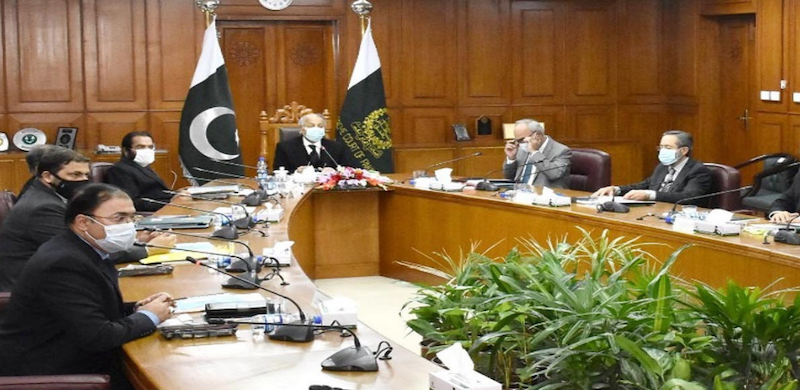
Press Release
The Women’s Action Forum (WAF)’s Karachi, Hyderabad and Islamabad chapters have expressed 'concern' about the current controversy surrounding the recent appointment and nomination of judges by the Judicial Commission of Pakistan (JCP). In a statement, the WAF said, "This controversy highlights the urgent need for significant reforms in the process of appointments to the Supreme Court, which is currently non-transparent and seemingly arbitrary."
There is an absence of clearly defined criteria – whether objective or subjective – for the appointment of judges to the highest court of the land. Further, the decision-making process of the Judicial Commission is unavailable to the public, and therefore cannot be subject to democratic discussion and debate.
Background
The non-transparency in the process of the recent nominations and appointment has triggered many questions and concerns that remain unaddressed. We note that these have further weighed down the ethnic imbalances that preexist in the judiciary and society at large. The appointment of Justice Mazhar, a former judge of the Sindh High Court as a permanent judge, whereas the invitation to the Chief Justice of the Sindh High Court Ahmed Ali Sheikh as an ad hoc judge, has reinforced issues with the current process and fuelled ethnic discord.
How is it that a judge is given charge of the second largest province in the country and is then invited as an “ad hoc” judge rather than seen fit to join the Supreme Court as a permanent judge? This question has not been satisfactorily answered. There are fears this can ignite into an Urdu-speaking vs Sindhi-speaking ethnic debacle. It was in this context that the Sindh High Court Bar
Association and Pakistan Bar Council asked the Judicial Commission of Pakistan to consider reforms to the process prior to Supreme Court appointments since currently no reasons are given for doing so, and until such time that a criteria is developed, opt for seniority as a rule to dispel perceptions regarding handpicking and bias.
The JCP ignored this request and announced the nomination of Lahore High Court judge Ayesha Malik to the Supreme Court. The nomination of Justice Ayesha Malik has been well received since prospectively, she would be the first female justice of the Supreme Court of Pakistan. This is a matter of great pride for Pakistan and a long-standing demand of the women’s movement. For women lawyers struggling to be recognized as equals in the profession, the presence of a woman judge in the Supreme Court would be hugely beneficial. However, it is unfortunate that she was nominated at a time when all the valid questions raised about the process remain unaddressed. This has unnecessarily mired Justice Malik’s candidacy into a controversy.
The Women’s Action Forum (WAF)’s Karachi, Hyderabad and Islamabad chapters have expressed 'concern' about the current controversy surrounding the recent appointment and nomination of judges by the Judicial Commission of Pakistan (JCP). In a statement, the WAF said, "This controversy highlights the urgent need for significant reforms in the process of appointments to the Supreme Court, which is currently non-transparent and seemingly arbitrary."
There is an absence of clearly defined criteria – whether objective or subjective – for the appointment of judges to the highest court of the land. Further, the decision-making process of the Judicial Commission is unavailable to the public, and therefore cannot be subject to democratic discussion and debate.
Background
The non-transparency in the process of the recent nominations and appointment has triggered many questions and concerns that remain unaddressed. We note that these have further weighed down the ethnic imbalances that preexist in the judiciary and society at large. The appointment of Justice Mazhar, a former judge of the Sindh High Court as a permanent judge, whereas the invitation to the Chief Justice of the Sindh High Court Ahmed Ali Sheikh as an ad hoc judge, has reinforced issues with the current process and fuelled ethnic discord.
How is it that a judge is given charge of the second largest province in the country and is then invited as an “ad hoc” judge rather than seen fit to join the Supreme Court as a permanent judge? This question has not been satisfactorily answered. There are fears this can ignite into an Urdu-speaking vs Sindhi-speaking ethnic debacle. It was in this context that the Sindh High Court Bar
Association and Pakistan Bar Council asked the Judicial Commission of Pakistan to consider reforms to the process prior to Supreme Court appointments since currently no reasons are given for doing so, and until such time that a criteria is developed, opt for seniority as a rule to dispel perceptions regarding handpicking and bias.
The JCP ignored this request and announced the nomination of Lahore High Court judge Ayesha Malik to the Supreme Court. The nomination of Justice Ayesha Malik has been well received since prospectively, she would be the first female justice of the Supreme Court of Pakistan. This is a matter of great pride for Pakistan and a long-standing demand of the women’s movement. For women lawyers struggling to be recognized as equals in the profession, the presence of a woman judge in the Supreme Court would be hugely beneficial. However, it is unfortunate that she was nominated at a time when all the valid questions raised about the process remain unaddressed. This has unnecessarily mired Justice Malik’s candidacy into a controversy.
